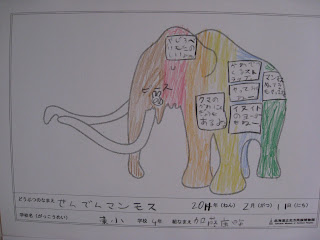
Last week was big for me: I got on Twitter; joined and filmed a protest against the construction of U.S. military helipads in Takae, Okinawa; spent most of my week outside of work editing my footage of the protest;
met with two U.S. Congresswomen at a Democrats Abroad in Japan event; and spent the weekend in Hokkaido.
Connecting
After getting on Twitter (follow me @bking47), it became clear to me how this type of connectivity alters the flow of information, i.e. it's constant! One could pretty much stayed glued to their Twitter feed 24/7 after they start following just a few interesting people and organizations, and be getting new information every couple of seconds that is meaningful, relevant and up-to-the-moment. After the events in Egypt and Tunisia, I justified joining the Twittersphere by vowing to use it as a tool for activism. I've enjoyed the experience of engaging people on Twitter, and have found it to be a valuable platform. But it's like email on crack! As experts have noted about email, you can almost get addicted to it do to the principle of "intermittent reinforcement." That is the psychological principle that you never know when you will get a reward (when we get an interesting email, that triggers a "dopamine squirt" in the brain), so you end up checking for it all the time. This effect is even more intense with Twitter.
Disconnecting
Overwhelmed by such a busy week, I decided I wanted to maximize my mental health and relaxation during my weekend vacation in Hokkaido. I did just that with decadent meals (crab, sushi, hokkaido ramen, Ghengis Kahn) and plenty of onsen (natural hot spring baths.) I decided at the start of the weekend I would try to enjoy my time away from my computer at home and try to "disconnect" from the world of screens a little bit. I still had my cell phone, so I continued texting and emailing a little during the weekend. But I enjoyed the down time and did a little reading. Luckily, a co-worker had given me a book on yoga meditation, so I had something to read with a focus on mindfulness.
We also visited some museums on the trip, including the Abashiri Museum of Northern [Indigenous] Peoples. At this exhibit, I found myself drawn to the interactive touch screen displays, paying less attention to the actual artifacts of clothing, tools and other aspects of material culture. I wanted to learn as much about the Ainu (native people of Hokkaido) as I could during the visit, so I went for the touch screens with information about their environmental history, languages, religion, etc. As a trained computer user, my feeling is that I can access the most relevant information most quickly through a computer. The section of the exhibit on shamanism and traditional instruments also featured TV loops with footage of ceremonies. Finally, I was equipped with my digital camera to capture pictures and information for this blog post.
Though I was pretty successful at disconnecting for the weekend, I was still connected through my cell, digital camera and screens in the museums. I found myself drawn to other pleasurable activities, such as sight-seeing, reading, bathing, eating and drinking. I tried to stay in the moment and enjoy the experience as much as possible. And we saw some cool stuff! An icebreaker boat cruise; cranes, bears, hawks and dear; and a former prison that had been converted into a museum. Great trip!
Reconnecting
A recent episode of WNYC's On the Media was devoted to the [trite] question, "Is the internet helping or hurting us?" Though I found the theme ironic and uninspired, I appreciated the comments by Ethan Zuckerman, long time internet and society critic. He talked about the role of social media in the revolutions in Egypt and Tunisia, and the role of social networking in repressive societies. I was struck by his comment that the diverse use of social networks (to keep in touch with friends, find entertainment, share information, etc.) makes it harder for dictators to shut them down. Wouldn't you be pissed off if you couldn't watch a cat in a hat or buffalo in a house because your government was hunting down political dissidents? Controlling or shutting down social networking sites is really hard when they have no inherent political message, said Zuckerman.
This made me rethink my own use of Twitter. When I joined the other week, I thought I would use Twitter as an activist tool only, returning my facebook wall to a more benign, less politicized online space. Though I've stayed true to using Twitter for social causes, my facebook hasn't really gotten any less political or light-hearted. But given Zuckerman's advice, should I be less cut and dry about my approach to social media? Should I use each platform in a comparatively whimsical way without regard for the role I'm playing as a user? I can see Zuckerman's point, and I imagine my friends will start to ignore my posts of they are obsessively hammering away on political issues. In this regard, I think it makes sense to diversify the uses of each medium. Rather than relying solely on different accounts or social networking tools for different purposes (although I think this is a valid approach), I will work on being mindful of my role and my audience. Is this for work, is this for play, is this for social change, or all of the above? Who's going to look at my post and what will they think? Keeping these questions in mind, I hope to become a more compelling internet user.









No comments:
Post a Comment